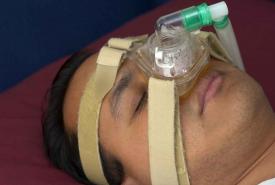FDA approves Susvimo for macular degeneration
Roche announced that the U.S. Food and Drug Administration (FDA) has approved Susvimo (ranibizumab injection) 100 mg/mL for intravitreal use via ocular implant for the treatment of people with neovascular or wet age-related macular degeneration (nAMD) who have previously responded to at least two anti-vascular endothelial growth factor (VEGF) injections. Neovascular AMD is a potentially blinding condition that requires treatment with eye injections as often as once a month.


















